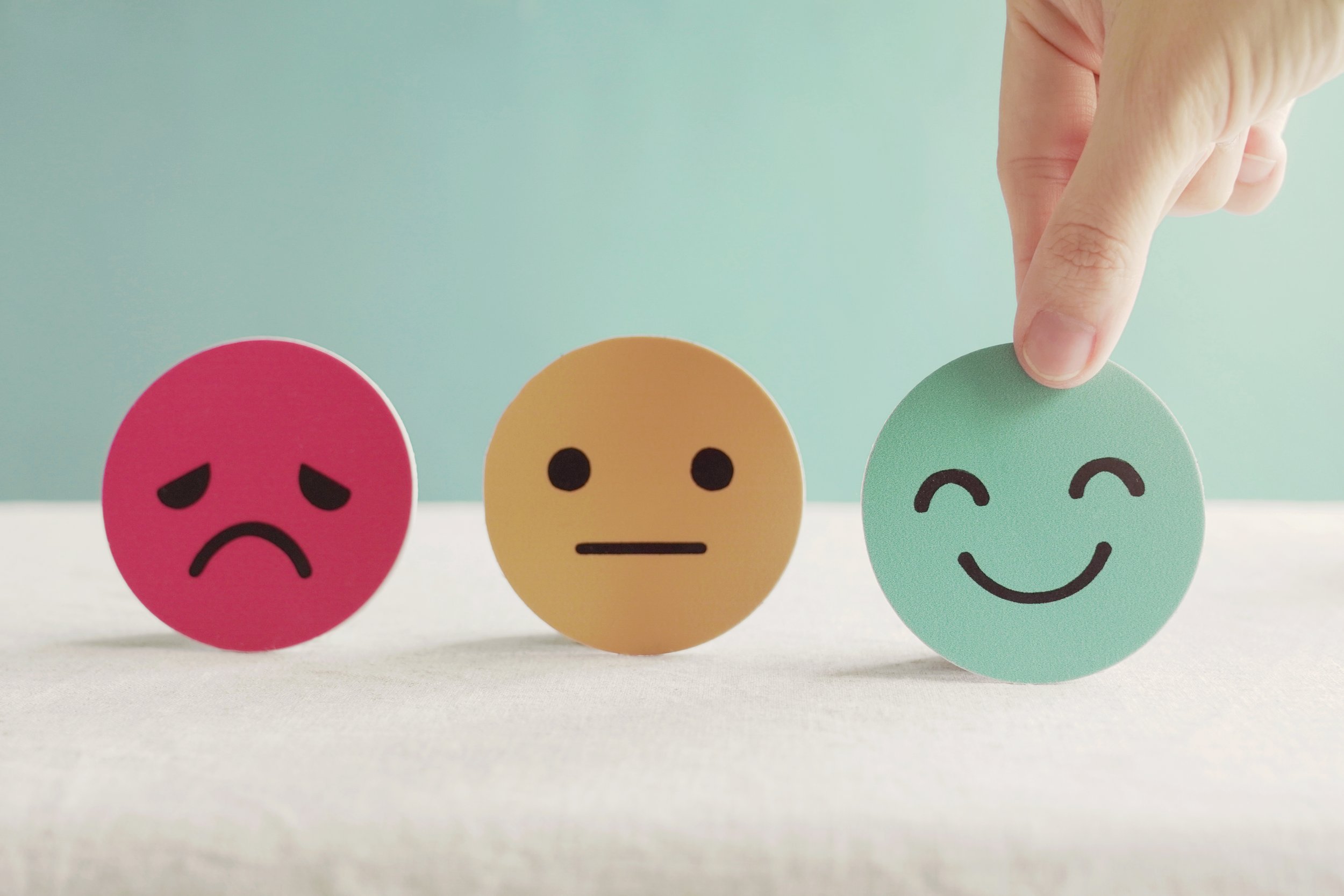How Can I Break the Cycle of Negativity?
Our lives are composed of countless situations that we experience daily, which are then defined by our own perceptions. No two individuals who experience a situation will perceive it in the exact same way. What factors inform our perceptions and can they be altered?
Any situations that we experience can be divided into three parts: thoughts, feelings, and behaviors. For example, if someone is feeling depressed, waking up in the morning can be difficult. They may have the thought of “I know today will be a bad day.” It would not be uncommon for the result to be that they stay in bed and sleep longer, which is the behavior.
Many times we may not be aware of these three areas distinctly, which can make it difficult to understand and process our experiences effectively. Clearly identifying our thoughts, feelings, and behaviors can be like untangling a ball of yarn. Seeing that ball of yarn may be overwhelming and we would generally not know where to start. It can also lead us to avoid working on it which can be similar to the confusion and frustration we feel in many situations. Being able to separate between what one is thinking in any situation, versus what they are feeling and how they are behaving, can be crucial to making sense of those situations.
Our thoughts, feelings, and behaviors often work together in a cycle, one influencing the other with increasing intensity. For instance, in the example above, if one chooses to stay in bed (behavior) then they will be confirming any negative thoughts they have about themselves and increasing their number and intensity. They may now think, “I knew it was going to be a bad day and now half the day is gone while I’m still in bed.” This can, in turn, result in stronger feelings of depression, disappointment, and guilt.
Understanding that we can break down any situation to these three components can be empowering. We are now more in control of how we react and behave. We cannot change our feelings by wishing them away, but we can affect them by focusing on what thoughts and behaviors we choose to engage in. The key is breaking the cycle by changing how we think or behave. To use the same example above, we can change our thoughts by saying something more rational: “I can’t predict how today will be. I won’t know how the day will turn out if I don’t participate in it. I remember I thought this way before and it was actually a good day.” We can also choose to change our behavior by getting up from bed despite how we feel or what thoughts we have. Changing either one of these two areas will break the cycle and allow us to think and behave more positively, which would then result in more favorable feelings.
One may say that this is overly simplistic and does not work. However, like everything else we want to master and perfect, it takes practice. We must train our minds to be more aware of how we are thinking in any given situation, how we feel, and what behaviors we are engaging in as a result. It is important to note that it may not be any one area that is the first to influence the others, but that it can go in any direction. For instance, what we think may affect how we feel and behave, but how we behave will also have a strong influence on how we think and feel. Bringing awareness to these points is the first step and that can be followed by actively intervening and breaking the cycle by changing our thoughts and behaviors.
Looking at another example, let us say that we are feeling guilty or ashamed about praying. Our thoughts in that situation could be, “I already missed so many prayers so there’s no hope for me now. God won’t forgive someone like me. I can’t show my face at the mosque when people know I don’t pray regularly.” The behavior would then be not praying, isolating themselves, staying home/going to a party or somewhere other than the mosque.
By not going to the mosque or praying (behavior), I am confirming my own thoughts about myself, “I knew that prayer wasn’t for me. I am not a good Muslim.” The solution here is to change how we think or behave, such as by going to pray anyway or visiting the mosque despite what we think of ourselves or our past (behavior). We can also think more rationally by saying, “God is forgiving and wants me to come closer to Him. God knows I’m not perfect. It’s more important what I think of myself than how others see me. The mosque is open to everyone.”
Having awareness is the first step, which will allow us to notice patterns and triggers. The second step is changing the patterns we do not like by breaking the cycle (changing our thoughts or behaviors). This type of intervention has been proven to be very effective in treating depression, anxiety, and other conditions, but is also useful to have as a tool in daily life, whether in school, at work, in social situations, or even religiously.

